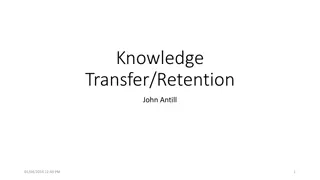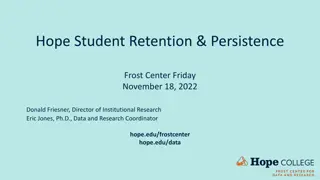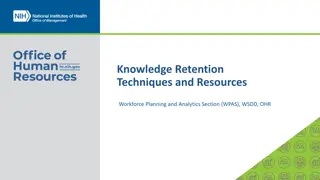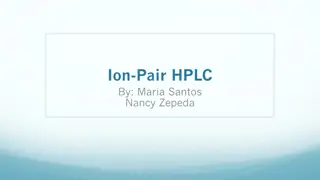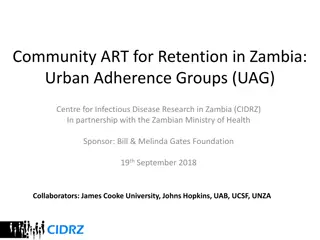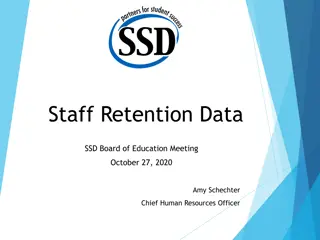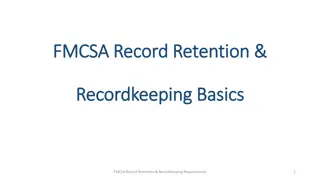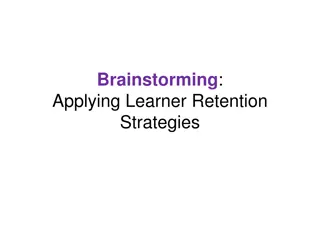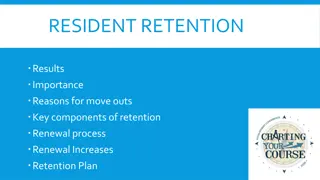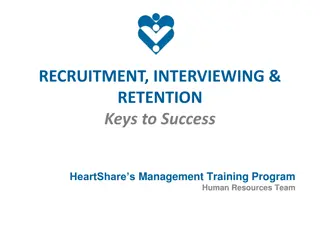
Impact of Grade Retention on High-Risk Students in Education System
Understanding the implications of grade retention on high-risk students in the educational system. Research shows that while retention may offer short-term benefits, it often leads to long-term negative outcomes such as increased dropout rates and limited academic achievement. It is crucial to assess the effectiveness of grade retention policies in supporting struggling students effectively.
Download Presentation

Please find below an Image/Link to download the presentation.
The content on the website is provided AS IS for your information and personal use only. It may not be sold, licensed, or shared on other websites without obtaining consent from the author. If you encounter any issues during the download, it is possible that the publisher has removed the file from their server.
You are allowed to download the files provided on this website for personal or commercial use, subject to the condition that they are used lawfully. All files are the property of their respective owners.
The content on the website is provided AS IS for your information and personal use only. It may not be sold, licensed, or shared on other websites without obtaining consent from the author.
E N D
Presentation Transcript
RETENTION CH INO VALLE Y UNIFIE D SC H O O L D I ST R I C T Presented by: Steven Cazares and Stephen De Francis Special Education Department
LEARNING INTENTIONS IDENTIFICATION OF HIGH -RISK STUDENTS DATA AND RESEARCH POLICY PROCESS
RETENTION Grade retention refers to the practice of keeping students at the same grade level for an additional year. Retention is perceived as a remedy for many struggling student across the country (Hong and Yu,2008). The rationale behind retention is that it gives low-achieving students an extra year to "catch- up" to the grade-level standard.Retention is viewed as additional learning time. The assumption is that "by catching-up on prerequisite skills, students should be less at risk for failure when they go onto the next grade" (Shepard and Smith, 1990, p. 84).
HIGH RISK GROUPS Retained students are more likely to be male, minority, younger than their peers, of low socioeconomic status, and living in poor households and single parent families (Byrd and Weitzman, 1994). Parents of retained students are more likely to have lower IQ scores and lower levels of cognitive functioning, lower educational levels, lower occupational levels, less commitment to parenting responsibilities (Jimmerson, 1999). Retained students are more likely to have poorer academic performance prior to retention; significantly lower social skills and poorer emotional adjustment; more problem behaviors, such as inattention and absenteeism; more school transfers; poorer health; and disabilities (Mc Coy and Reynolds,1999). Demographics Family Background Educational Attainment
RESEARCH The majority of studies conducted over the past four decades on the effectiveness of grade retention fail to support its efficacy in remediating academic deficits (e.g. Jimerson, 2001). When retained and promoted peers are compared in the same grade, retained students experience a short-term boost that dissipates within 4 years (Wu et al., 2008). Retained students tend to have lower levels of academic adjustment in later grades (Sipple,J.W., Killeen, K. & Monk D.H., (2004). Grade retention is one of the predictors for high school student dropouts (Jimmerson S.R.,Anderson, G., & Whipple, A., (2002).
ANALYSIS OF DATA Retained students have a significantly increased risk of eventually dropping out of school (Baenen, 1988). Compared with their peers, retained students also appear less likely to pursue postsecondary education and more likely to have poorer employment outcomes in terms of earnings (Fine and Davis,2003). Findings on social, emotional, attitudinal, and behavioral outcomes among the retained students compared with their promoted peers appear mixed, with some studies reporting positive outcomes and others finding insignificant or even negative results (Hong and Yu, 2007). Few studies were able to demonstrate academic achievement in the years immediately following retention however most studies found long term adverse negative relationships between retainment and academic achievement (Nagaoka and Roderick, 2004). "The majority of studies conducted over the last few decades suggest that retention does more harm than good" ..
ACADEMIC AND SOCIO- EMOTIONAL OUTCOMES RETENTION FINDINGS ACROSS K-8 Academic Outcomes Social- Emotional Outcomes 5% 5% 9% Promoted Group did Significantly Better No Difference Promoted Group did Significantly Better Showed No Difference 47% 48% Retained Group Retained Group 86% J I ME R S O N , S . R . ( 2 0 0 1 ) . ME T A A N A L Y S I S O F GR A D E R E T E N T I O N R E S E A R C H : I MPL I C A T I O N S F O R PR A C T I C E I N T H E 2 1 S T C E N T UR Y . S C H O O L PS Y C H O L O GY R E V I E W , 3 0 ( 3 ) , 4 2 0 - 43 7.
Board Policy 5123(a) The Board of Education expects students to progress through each grade within one school year. To accomplish this, instruction should accommodate the varying interests and growth patterns of individual students as well as the variety of ways that students learn and include strategies for addressing academic deficiencies when needed. Students shall progress through the grade levels by demonstrating growth in learning and meeting grade-level standards of expected student achievement. When a student is recommended for retention or is identified as being at risk for retention, the Superintendent or designee shall provide opportunities for direct, systematic, and intensive supplemental instruction to assist the student in overcoming his/her academic deficiencies. (Education Code 37252.2) RETENTION IN CVUSD
Board Policy 5123(a) The Board of Education expects students to progress through each grade within one school year. To accomplish this, instruction should accommodate the varying interests and growth patterns of individual students as well as the variety of ways that students learn and include strategies for addressing academic deficiencies when needed. Students shall progress through the grade levels by demonstrating growth in learning and meeting grade-level standards of expected student achievement. When a student is recommended for retention or is identified as being at risk for retention, the Superintendent or designee shall provide opportunities for direct, systematic, and intensive supplemental instruction to assist the student in overcoming his/her academic deficiencies. (Education Code 37252.2) RETENTION IN CVUSD
Board Policy 5123(a) The Board of Education expects students to progress through each grade within one school year. To accomplish this, instruction should accommodate the varying interests and growth patterns of individual students as well as the variety of ways that students learn and include strategies for addressing academic deficiencies when needed. Students shall progress through the grade levels by demonstrating growth in learning and meeting grade-level standards of expected student achievement. When a student is recommended for retention or is identified as being at risk for retention, the Superintendent or designee shall provide opportunities for direct, systematic, and intensive supplemental instruction to assist the student in overcoming his/her academic deficiencies. (Education Code 37252.2) RETENTION IN CVUSD
Administrative Regulation 5123(a) RETENTION IN CVUSD If retention is needed, a student should be retained as early in his/her school career as practicable. ( ) Determination to retain shall be made by a promotion/retention team, consisting of the student s English/language arts and mathematics teacher(s), the principal or designee, and at least one other certificated staff member (classroom teacher, counselor, or specialist). The parent/guardian will be invited to participate in this meeting.
Administrative Regulation 5123(a) RETENTION IN CVUSD If retention is needed, a student should be retained as early in his/her school career as practicable. ( ) Determination to retain shall be made by a promotion/retention team, consisting of the student s English/language arts and mathematics teacher(s), the principal or designee, and at least one other certificated staff member (classroom teacher, counselor, or specialist). The parent/guardian will be invited to participate in this meeting.
Administrative Regulation 5123(a) RETENTION IN CVUSD Students with an Individualized Education Plan (IEP) shall be given the opportunity to participate in an academic intervention program as early as possible in the school year. The decision to promote or retain shall be made by the Individualized Education Plan Team. Revised July 19, 2018
Administrative Regulation 5123(a) RETENTION IN CVUSD Students with an Individualized Education Plan (IEP) shall be given the opportunity to participate in an academic intervention program as early as possible in the school year. The decision to promote or retain shall be made by the Individualized Education Plan Team. Revised July 19, 2018
Administrative Regulation 5123(a) As established by Board policy, students shall be identified for retention or for being at risk of retention on the basis of grades, assessment results on the Standardized Testing and Reporting (STAR) Programs, district reading, math, and writing assessments and other contributing factors as follows: Teacher observation Attendance/Behavior which have negatively impacted academic achievement Social/Emotional developmental appropriateness Light s Retention Scale RETENTION IN CVUSD Revised July 19, 2018
RETENTION AND THE IEP PROCESS PARENT-INITIATED REQUEST
INFORM SITE ADMINISTRATOR CALL THE PROGRAM SPECIALIST SCHEDULE MEETING ACCORDING TO TIMELINES PARENT REQUEST FOR RETENTION DOCUMENT RECOMMENDATIO N IN IEP NOTES PREPARE DATA INPUT FROM ALL TEACHERS & RELATED SERVICE PROVIDERS
Attendance Behavior Goal Progress PREPARE DATA Academic Grades Assessment Data Formal/Informal Maturity/Age Social Impact
FREQUENTLY ASKED QUESTIONS
What happens if the parent continues to pursue retention? What is the importance of data collection and a staffing meeting? How early in the process should I discuss with the Program Specialist? What do I do if the parent requests an IEP to discuss retention at the beginning of the school year? What are some alternatives to retention? Should the school psychologist and related service providers participate in the discussion to retain?
We are going to have a great year learning together!



